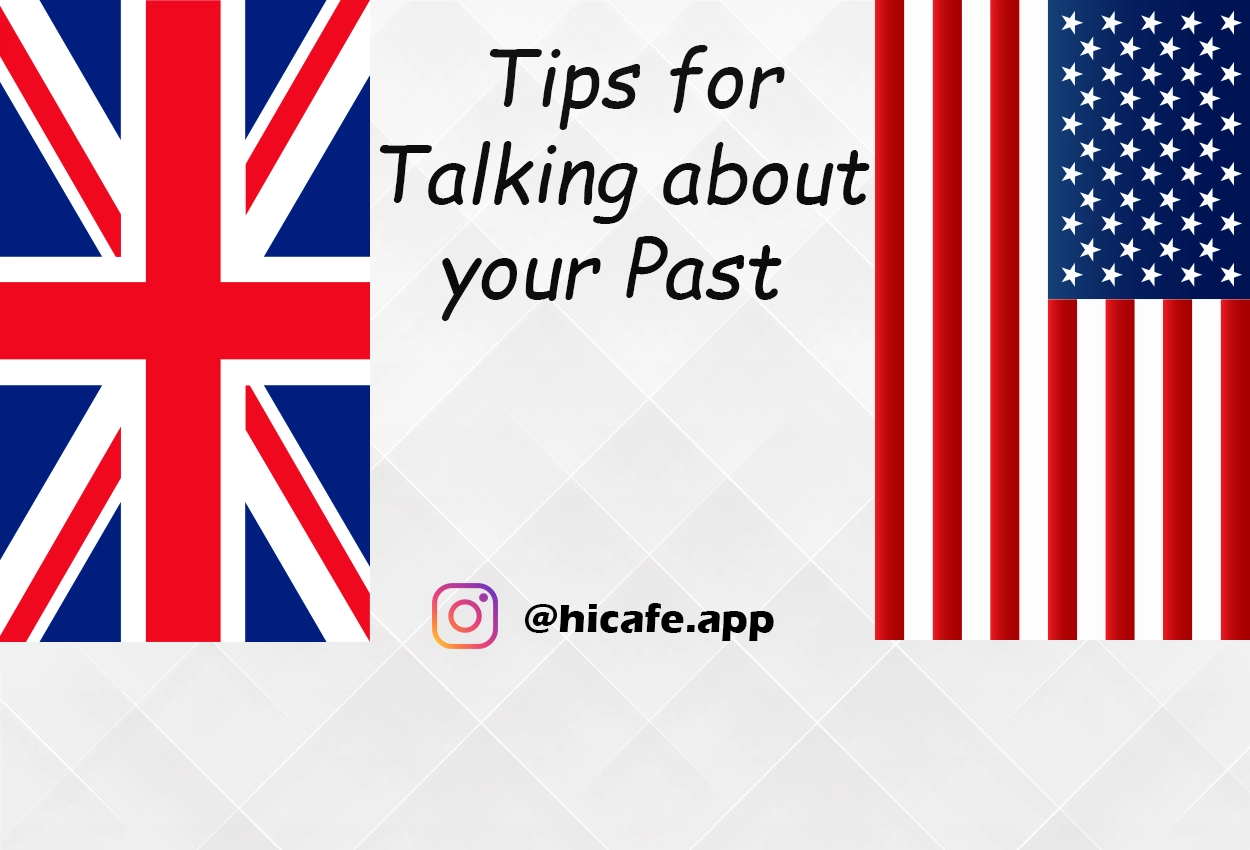
When learning to speak about your past in English, it’s important to use the correct verb forms, time expressions, and connectors to effectively communicate your experiences. By mastering these essential tools, you can learn about talking about past in English so you can share your life story with clarity and coherence.
Previous Conversation Tip Lesson
Prediction in English Conversation
How to Talk About Past in English
Use these tips to help you speak about your past in English.
Born
Remember to use the past form of the verb “to be” with “born”:
- I was born
- You were born
- He was born
- We were born
- They were born
Examples
- I was born … (in 2003)
- He was born … (ten years ago)
- They were born … (in Paris / in hospital / at home)
Time expressions
- For the first five years of my life, we lived in a cottage. Then, we moved to the city and everything changed.
- I learned to read when I was 4! In total, I attended school for 10 years.
- In 2010, I landed my first job as a software engineer.
Emotions, feelings and states
Use the verb “to be” to talk about emotions in the past.
- Despite being broke, we were always laughing and having fun.
You can also use “feel” (“felt” in the past tense) but this is less common.
- I felt utterly worried when I moved to a new city.
Use “was” or “were” to talk about jobs.
- My grandfather was a skilled carpenter.
You can also use “worked as a / an”:
- He worked as a chef at a fancy restaurant.
To talk about how many or how much of something, use “there was” or “there were”.
- There were always so many books in our house!
- There were many interesting places to visit.
- There was smoke all over the house when I entered.
Difficult verbs
Be careful how you use these:
- To start
You only start something once.
- I started learning to code back in 2018.
- I started college three years ago.
- To meet
You meet someone on a single or repeated occasion. It doesn’t mean “to know”.
- I met my best friend on a camping trip.
- I met my husband at university.
- To know
To know someone or something is a state – not an event.
- I didn’t know how to swim until I was 10.
- I knew lots of celebrities when I lived in New York.
Use simple connectors to tell a story
- And = adds an idea
I went to the store and bought a new laptop.
- But = gives a contrast
I wanted to go to the concert, but I didn’t have enough money.
- So = gives a result
The train was delayed, so I missed my meeting.
(When you write English, you don’t need a comma before and, but or so if both parts of the sentence are short.)
- Because = gives a reason
We decided to travel to Japan because my sister lives there.
“Because” can go at the beginning or in the middle of a sentence.
Because the weather was so awful, we didn’t enjoy the day
- Then = explains what happened next
I graduated from college, then I started working full-time.
- After = says what happened in a time following an event, or as a result of something else
After the snowstorm, the roads were covered in ice.
She left the house, after yelling at me.
Conclusion
Mastering the art of talking about your past in English opens up a world of possibilities for sharing your stories, connecting with others, and expressing yourself authentically Keep practicing, don’t be afraid to make mistakes, and enjoy the journey of discovering your own unique voice!
Next Conversation Tip Lesson
Related Conversation Lessons
None
Practice Conversation with HiCafe App
By using HiCafe App, you can join free discussion events and Practice English Conversation online or in-person and improve your verbal skills.
All Conversation Lessons
To see and read all of our conversation lessons, you can visit our Improve English Speaking Skills page.


